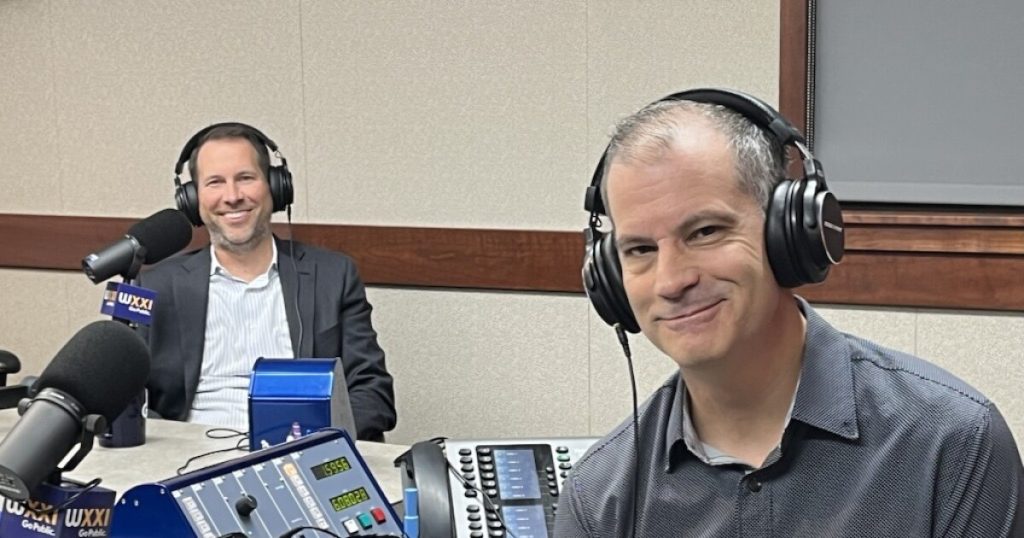Listen to the article
Artificial intelligence has emerged as a powerful tool in the hands of authoritarian regimes seeking to destabilize democratic institutions worldwide, according to a leading expert on information manipulation.
Bret Schafer, who heads the Alliance for Securing Democracy’s information manipulation team, warns that state actors are increasingly deploying sophisticated AI technologies to create and disseminate propaganda with unprecedented efficiency and reach. Schafer’s research focuses on tracking how both government and non-government entities utilize these advanced tools to shape public opinion across global information ecosystems.
“What we’re seeing is a fundamental shift in how disinformation campaigns operate,” Schafer explained during his visit to Rochester as a guest of the World Affairs Council. “AI has dramatically lowered the barriers to entry for creating convincing fake content while simultaneously increasing the potential scale of distribution.”
The evolution of AI tools has created a particularly challenging landscape for democracies, which typically value free speech and open information exchange. These values, ironically, can make democratic societies more vulnerable to manipulation campaigns that exploit these freedoms.
Authoritarian governments, particularly those in Russia and China, have invested heavily in AI capabilities that allow them to generate persuasive text, manipulate images, and even create deepfake videos that can be nearly indistinguishable from authentic content. These technologies enable the creation of customized propaganda tailored to specific audiences or demographic groups.
“The sophistication level has increased exponentially,” Schafer noted. “We’ve moved beyond simple bot networks posting crude propaganda to AI systems that can analyze audience responses in real-time and adjust messaging accordingly.”
The information security community has observed these campaigns targeting electoral processes, public health initiatives, and social cohesion across multiple democratic nations. During the COVID-19 pandemic, for instance, research identified coordinated efforts to undermine trust in vaccines and public health measures using AI-generated content designed to appear as grassroots skepticism.
One particularly concerning development has been the ability of these systems to mimic local news sources or create entirely fictional personas with elaborate digital footprints. These techniques exploit the trust many citizens place in familiar information sources.
“Recognizing AI-generated disinformation requires a level of digital literacy that many people simply haven’t had the opportunity to develop,” Schafer said. “The technology is advancing faster than our educational systems and regulatory frameworks can adapt.”
Experts suggest several approaches to counter these threats. Media literacy programs represent one critical component, helping citizens develop the skills to evaluate information sources critically. Technical solutions, including AI detection tools that can identify synthetic content, are also advancing rapidly, though they remain in a technological arms race with generation capabilities.
Policy responses present perhaps the most complex challenge. Democratic governments face the difficult task of crafting regulations that limit harmful manipulation without restricting legitimate speech or innovation. International coordination remains essential, as disinformation campaigns frequently cross borders and jurisdictional boundaries.
The Alliance for Securing Democracy, where Schafer leads information manipulation research, advocates for a multi-stakeholder approach that brings together government agencies, technology companies, civil society organizations, and academic institutions to develop comprehensive responses.
“This isn’t just a technological problem – it’s a societal one,” Schafer emphasized. “Strengthening democratic institutions and rebuilding trust in legitimate information sources must happen alongside technical countermeasures.”
As AI capabilities continue to advance, Schafer predicts that the challenge will only grow more acute. However, he also sees potential for defensive applications of the same technologies, including automated fact-checking systems and improved detection of synthetic media.
“Ultimately, the resilience of democratic societies will depend on their ability to adapt quickly while preserving the open information environment that sets them apart from authoritarian systems,” Schafer concluded. “That’s the fundamental paradox we need to resolve.”
Fact Checker
Verify the accuracy of this article using The Disinformation Commission analysis and real-time sources.




7 Comments
I appreciate the insights from the expert Bret Schafer on this critical issue. Democracies must find ways to balance free speech with protecting against malicious manipulation using advanced AI technologies.
Agreed. Striking that balance is no easy task, but it’s vital for preserving the integrity of democratic processes.
This is a complex issue without any easy solutions. I’m curious to learn more about the specific tactics and technologies that state actors are employing to leverage AI for disinformation campaigns.
Yes, understanding the technical details and methods used will be key to developing effective countermeasures. Ongoing research and monitoring of these trends is crucial.
The concerning part is how AI can lower the barriers to creating convincing fake content. This makes it much harder for the average citizen to discern truth from fiction. We need robust media literacy education to empower people.
The evolution of AI is a double-edged sword. While it has many beneficial applications, the potential for misuse in the realm of propaganda is alarming. We need to stay vigilant and proactive in addressing this challenge.
This is a concerning trend. AI-enabled propaganda is a real threat to democratic institutions. It’s crucial that we develop robust safeguards and fact-checking measures to combat the spread of misinformation.